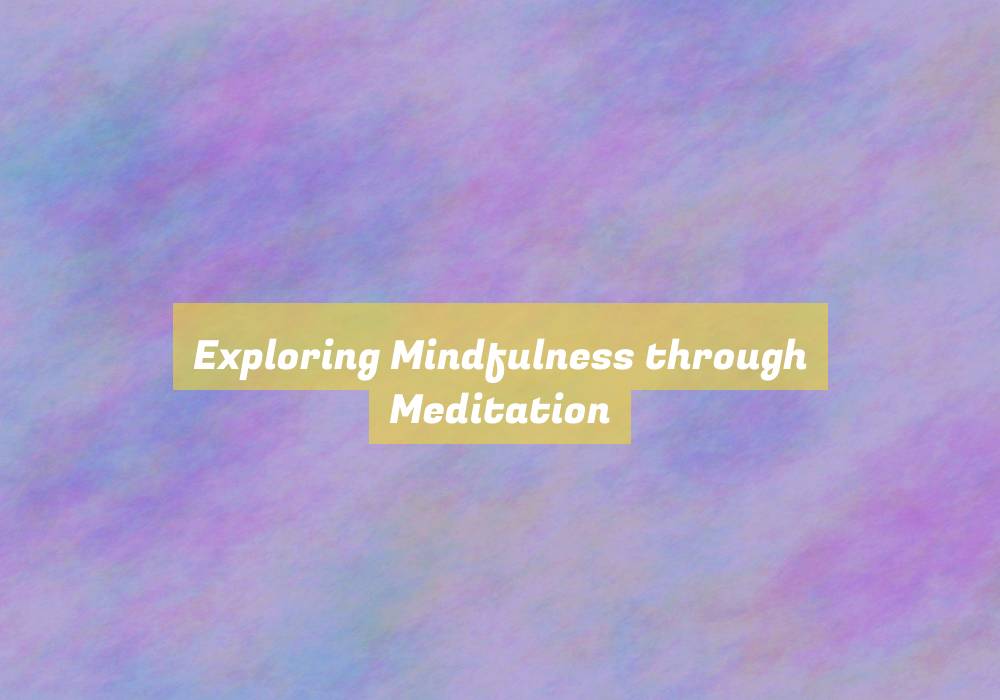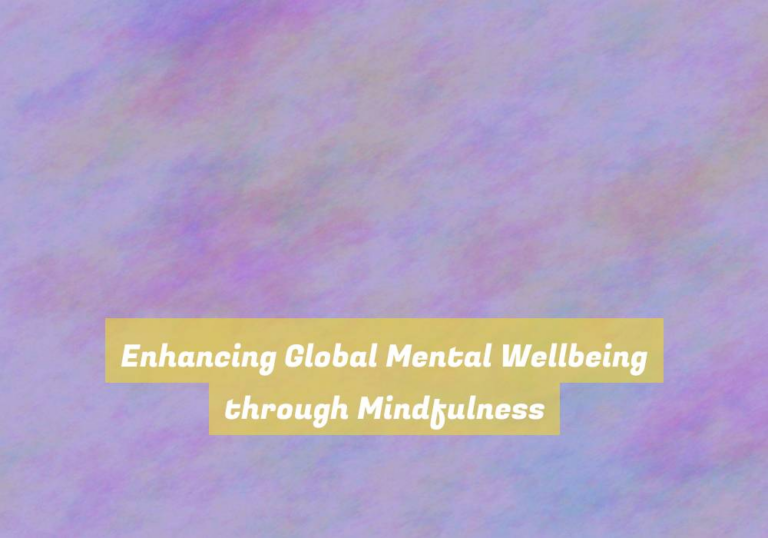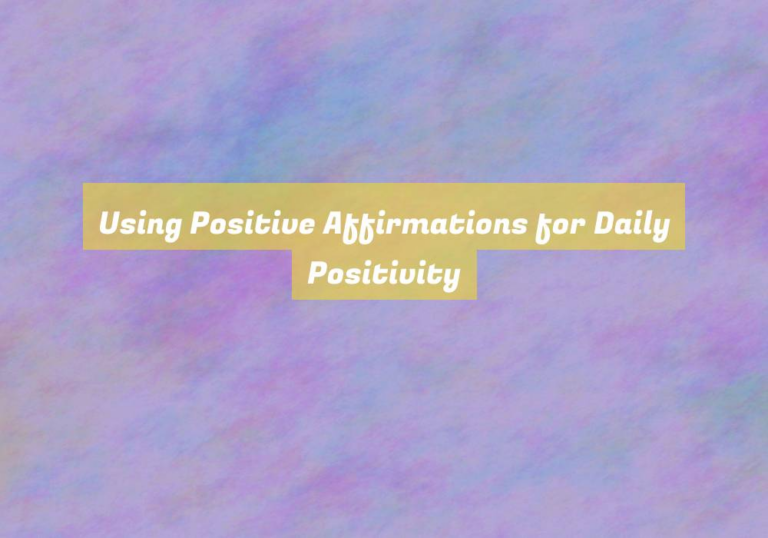Exploring Mindfulness through Meditation
Did you know that according to a study published in JAMA Internal Medicine, mindfulness meditation can help reduce symptoms of anxiety, depression, and pain?
The practice of mindfulness through meditation has gained significant attention in recent years for its potential to improve overall well-being. But what exactly is mindfulness, and how can meditation help you cultivate it in your daily life?
LetG??s explore the benefits and practical tips for incorporating mindfulness into your routine, and discover how it can positively impact your mental and emotional health.
Understanding Mindfulness Meditation
To understand mindfulness meditation, you need to focus on being present in the moment and observing your thoughts and sensations without judgment. This practice involves intentionally paying attention to the present moment, acknowledging and accepting your feelings, thoughts, and bodily sensations. ItG??s about being fully engaged in what youG??re doing, whether itG??s eating, walking, or simply breathing. Mindfulness meditation encourages you to let go of the past and future, and instead, tune in to the here and now.
By cultivating this awareness, you can develop a deeper understanding of your mind and emotions. It allows you to recognize patterns of thinking and emotional reactions, and to approach them with a sense of curiosity and non-judgment. This can lead to a greater sense of clarity and perspective in your daily life.
Mindfulness meditation isnG??t about emptying your mind or achieving a state of bliss. Instead, itG??s about acknowledging and embracing whatever arises in the present moment, whether itG??s pleasant, unpleasant, or neutral. Through this practice, you can develop a greater sense of self-awareness and emotional resilience.
Benefits of Mindfulness Practice
By practicing mindfulness meditation, you can experience a wide range of benefits that positively impact your mental and emotional well-being.
One significant benefit is the reduction of stress. Mindfulness practice helps you become more aware of your thoughts and feelings, allowing you to manage them better and reduce the negative impact of stress on your mind and body.
Additionally, mindfulness can enhance your ability to focus and concentrate. Through regular meditation, you train your mind to stay present and attentive, leading to improved cognitive function and productivity.
Furthermore, mindfulness practice fosters emotional regulation. It enables you to observe your emotions without being overwhelmed by them, leading to greater self-control and a more balanced emotional state.
Another valuable benefit is the improvement in overall well-being. Mindfulness meditation has been linked to increased feelings of contentment, gratitude, and compassion. It helps you cultivate a more positive outlook on life and enhances your overall satisfaction.
Lastly, mindfulness can contribute to better mental health, reducing symptoms of anxiety and depression while promoting a greater sense of inner peace and happiness.
Practical Tips for Meditation
For successful meditation practice, focus on establishing a comfortable and quiet space where you can sit or lie down without distractions. Find a spot where you feel at ease, whether itG??s a cozy corner in your home or a peaceful outdoor setting.
Settle into a posture thatG??s both relaxed and alert, whether sitting cross-legged on a cushion or lying down with your arms by your sides. Close your eyes gently, allowing yourself to let go of any tension in your body. Take a few deep breaths, feeling the sensation of the air entering and leaving your body.
As you begin to meditate, try to anchor your attention on the present moment, whether itG??s the feeling of your breath, the sounds around you, or the sensations in your body. When your mind inevitably wanders, gently guide your focus back to your chosen anchor without judgment.
Remember that consistency is key, so aim to practice meditation regularly, even if itG??s just for a few minutes each day. With time and patience, youG??ll find that meditation becomes a valuable tool for cultivating mindfulness and inner peace.
Incorporating Mindfulness Into Daily Life
How can you integrate mindfulness into your daily life to foster a sense of presence and awareness?
Start by incorporating mindfulness into everyday activities, such as eating, walking, or even brushing your teeth. While eating, pay attention to the flavors, textures, and sensations of each bite.
When walking, focus on the sensation of your feet touching the ground. Incorporating mindfulness into routine tasks can help anchor you in the present moment.
Another way to integrate mindfulness is by setting aside specific times for mindful practice, whether itG??s a short meditation session in the morning or taking a few minutes during lunch to simply breathe and be present.
Additionally, incorporating mindfulness into daily life involves being mindful of your thoughts and emotions. When you notice yourself getting caught up in worries or stress, take a moment to pause, breathe, and bring your attention back to the present.
Conclusion
So, now that you have explored mindfulness through meditation, you can start incorporating it into your daily routine.
Remember to take a few minutes each day to practice mindfulness and enjoy the benefits it brings to your life.
By being present in the moment and cultivating a sense of calm, you can improve your overall well-being and live a more fulfilling life.
Give it a try and see the positive impact it has on you.







I find the concept of mindfulness meditation to be incredibly relevant, especially in today’s fast-paced world. It’s fascinating how simply being present can have such profound effects on our mental health, as highlighted in the study. Personally, I’ve been experimenting with mindfulness during my daily walks. Instead of letting my mind wander to my to-do list, I focus on the sensation of my feet hitting the ground or the sound of the leaves rustling. It’s amazing how this small shift has helped me manage stress and feel more grounded.